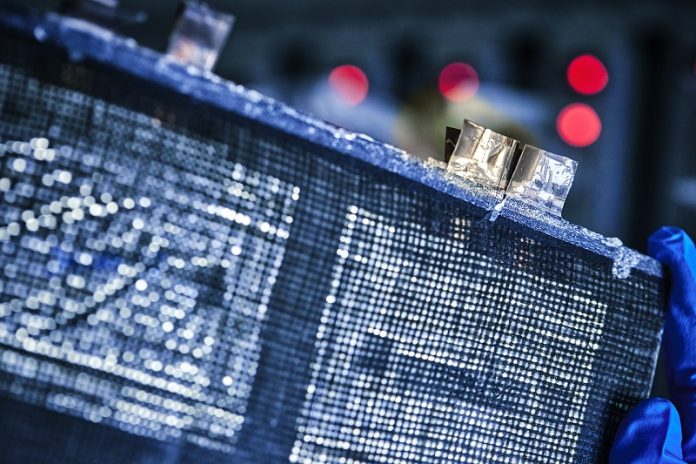
Researchers at Chalmers University of Technology in Sweden have made a groundbreaking advancement in energy storage.
They have developed a “structural battery” made of carbon fiber that can both store energy and support the structure of vehicles or devices.
This means that cars, planes, and electronics could become much lighter and more energy-efficient in the near future.
For example, the battery could increase an electric car’s driving range by up to 70% or make mobile phones as thin as a credit card.
This new carbon fiber battery is as strong as aluminum but can store enough energy to be commercially useful.
The material acts like a human skeleton, serving multiple functions at once—it can hold up a structure while also storing energy.
Professor Leif Asp and his team at Chalmers University first demonstrated how carbon fiber could be used in batteries back in 2018, receiving widespread recognition for their discovery.
Their work has been praised for its potential to revolutionize industries that rely on energy storage.
Since then, the team has improved their battery design by increasing its stiffness and energy density. The latest version can store 30 watt-hours per kilogram (Wh/kg) of energy.
While this is less than a typical lithium-ion battery, the weight savings in the overall structure mean less energy is needed to power the vehicle or device. In electric cars, for instance, this could allow for much longer trips on a single charge.
The battery is made of composite materials, with carbon fiber acting as both the positive and negative electrodes. The positive electrode is coated with lithium iron phosphate, a material used in many modern batteries.
This special carbon fiber also doubles as an electrical conductor and reinforcement material, meaning it can replace heavier components like copper and aluminum, further reducing weight.
One of the key benefits of this technology is its ability to reduce the overall weight of the vehicle or gadget, which directly impacts energy consumption.
For electric cars, lighter vehicles require less energy to move, increasing the distance they can travel between charges. The research team estimates that cars using this new type of battery could drive up to 70% longer than current electric vehicles.
The research team believes that this technology could be especially beneficial in industries where weight and energy efficiency are crucial, such as automotive, aerospace, and electronics.
For example, future mobile phones and laptops could be much thinner and lighter, or parts of planes and cars could be powered by structural batteries.
While there is still more work to be done before this battery can be mass-produced, the team is making progress toward commercialization. They’ve even launched a company, Sinonus AB, to help bring the technology to market.
With continued research and investment, we could soon see a world where vehicles and gadgets are lighter, more efficient, and longer-lasting thanks to these innovative carbon fiber structural batteries.



